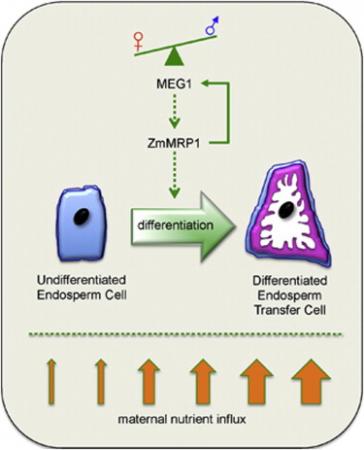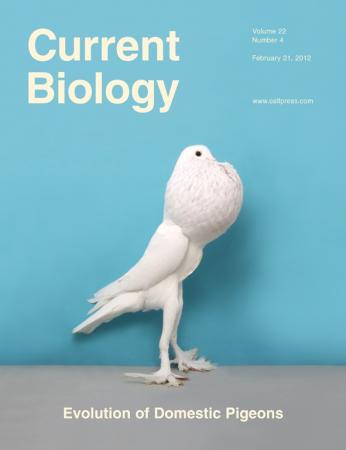导读:英国和法国科研人员组成的研究团队对玉米农作物进行的一项研究首次发现,能控制农作物向玉米种子提供营养素的“生长基因”,并将该基因命名为Meg1。Meg1的发现意义重大,预示着人类可以大大提高农作物的产量,减缓地球人口不断膨胀带来的粮食安全压力。

英国和法国科研人员组成的研究团队对玉米农作物进行的一项研究首次发现,能控制农作物向玉米种子提供营养素的“生长基因”,并将该基因命名为Meg1。Meg1的发现意义重大,预示着人类可以大大提高农作物的产量,减缓地球人口不断膨胀带来的粮食安全压力。该项研究结果在最近一期的《当代生物学》杂志上发表。
Meg1不同于大多数由母系染色体和父系染色体的双性遗传表达基因,而仅仅来自于母系染色体。这种由单性基因表达的独特形态在分子生物学上被称作印记(Imprinting),Meg1在农作物上被首次发现,是一项重要的科技突破。其实,这种基因印记已经在人体和哺乳动物基因组中得到证实,“生长基因”通过控制胎盘的生长,调整母体向胎儿成长提供的营养量。
Meg1的发现让科研人员深受鼓舞,目前研究团队正在对小麦和水稻等主要农作物的“生长基因”进行探索测试,同时积极开展利用“生长基因”增加种子生物质含量的机理研究,进而提高主要农作物的生产率和产量。该项研究得到欧盟科技合作计划(COST)框架的部分资助,COST是欧委会促进成员国之间密切合作关系、优化资源配置和建设欧盟统一研究区域(ERA)的重要支撑计划。

Maternal Control of Nutrient Allocation in Plant Seeds by Genomic Imprinting
Liliana M. Costa, Jing Yuan, Jacques Rouster, Wyatt Paul, Hugh Dickinson, Jose F. Gutierrez-Marcos
Imprinted genes are commonly expressed in mammalian placentas and in plant seed endosperms, where they exhibit preferential uniparental allelic expression. In mammals, imprinted genes directly regulate placental function and nutrient distribution from mother to fetus [1,2,3,4]; however, none of the >60 imprinted genes thus far reported in plants have been demonstrated to play an equivalent role in regulating the flow of resources to the embryo [5,6,7]. Here we show that imprinted Maternally expressed gene1 (Meg1) in maize [8] is both necessary and sufficient for the establishment and differentiation of the endosperm nutrient transfer cells located at the mother:seed interface. Consistent with these findings, Meg1 also regulates maternal nutrient uptake, sucrose partitioning, and seed biomass yield. In addition, we generated an imprinted and nonimprinted synthetic Meg1 (synMeg1) dosage series whereby increased dosage and absence of imprinting both resulted in an unequal investment of maternal resources into the endosperm. These findings highlight dosage regulation by genomic imprinting as being critical for maintaining a balanced distribution of maternal nutrients to filial tissues in plants, as in mammals. However, unlike in mammals, Meg1 is a maternally expressed imprinted gene that surprisingly acts to promote rather than restrict nutrient allocation to the offspring.
文献链接:https://www.cell.com/current-biology/retrieve/pii/S0960982211013807








